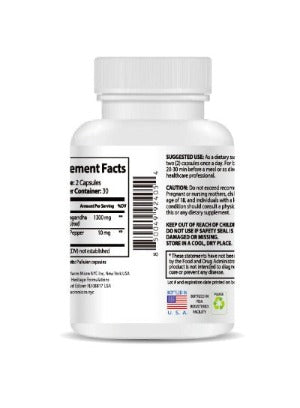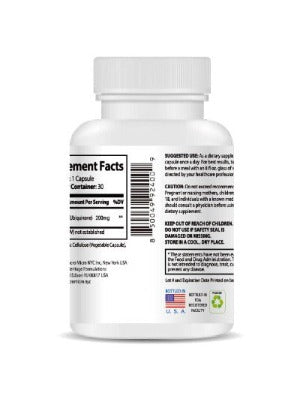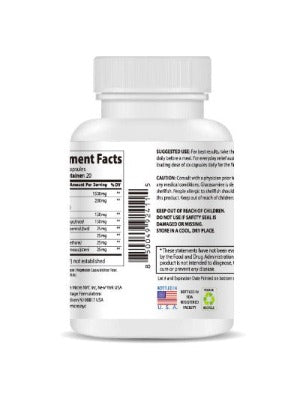Conquer Hay Fever Eye Itch: Simple Daily Habits for Relief
Hay fever, that unwelcome guest arriving each spring, can significantly impact our quality of life. The relentless itching, burning, and watery eyes are more than just irritating; they can be downright debilitating. But what if we told you that conquering this seasonal nemesis is within your reach, with a combination of simple daily habits and the right products? This comprehensive guide will empower you to take control and reclaim your comfort and clarity, even during peak allergy season. We'll explore effective daily practices, introduce you to a game-changing product, and delve into long-term strategies for managing your symptoms effectively.
Understanding the Hay Fever Eye Itch: A Deeper Dive
Hay fever, also known as allergic rhinitis, is an allergic reaction triggered by airborne allergens like pollen (tree, grass, weed), dust mites, pet dander, and mold spores. When these allergens come into contact with your eyes, your immune system responds by releasing histamine, a chemical that causes inflammation, leading to the telltale symptoms: itching, redness, swelling, excessive tearing, and that persistent, uncomfortable burning sensation. The severity of this reaction varies considerably from person to person, with some experiencing mild discomfort while others face significant disruption to their daily routines, work productivity, and overall well-being. Understanding the root causes is essential for developing an effective management plan.
The body's immune system mistakenly identifies harmless allergens as threats, triggering an immune response that leads to the inflammatory cascade. This process is highly individualized, with genetic predisposition playing a crucial role in determining sensitivity to particular allergens. Environmental factors also contribute, with higher pollen counts and increased air pollution exacerbating symptoms.
Daily Habits to Soothe Hay Fever Eye Itch: A Comprehensive Guide
Before we introduce any specific products, let's examine a series of straightforward yet exceptionally effective daily habits capable of dramatically reducing the impact of hay fever on your eyes. Consistency is paramount; integrating these practices into your daily routine will yield the most significant and lasting results.
- Wash your face regularly: Gently cleanse your face with lukewarm water, avoiding harsh soaps or chemicals that may further irritate already sensitive skin. This simple act removes accumulated pollen, dust mites, and other allergens, preventing them from prolonging or worsening your eye irritation.
- Use cool compresses: Applying a cool, damp compress to your closed eyelids for 10-15 minutes provides soothing relief from itching and inflammation. The coolness constricts blood vessels, reducing swelling and redness, and providing a welcome respite from the discomfort.
- Avoid rubbing your eyes: We understand the powerful urge, but resisting the temptation to rub your eyes is crucial. Rubbing only intensifies the irritation by increasing inflammation and triggering the release of more histamine. It can also lead to secondary infections or damage to the delicate eye tissues.
- Stay hydrated: Drinking plenty of water throughout the day not only helps to flush out allergens from your system but also maintains the natural lubrication of your eyes. Dehydration can exacerbate dryness, discomfort, and increase the sensation of itching and irritation.
- Protect your eyes: Wear sunglasses when outdoors, especially on windy days or during peak pollen hours, to create a physical barrier against pollen and other airborne allergens. Choose wraparound styles for maximum protection.
- Shower before bed: Washing your hair and body before sleep removes pollen that may have accumulated throughout the day, preventing it from transferring to your pillowcase and eyes during the night. This simple step can make a big difference.
- Change bedding regularly: Dust mites are a common allergen, particularly in bedding. Washing your pillowcases, sheets, and blankets weekly in hot water effectively eliminates these microscopic irritants and contributes to a cleaner, allergy-friendly sleep environment.
- Air purifiers with HEPA filters: Consider using an air purifier, especially in your bedroom, to filter out airborne allergens and improve indoor air quality. Look for models with HEPA (High-Efficiency Particulate Air) filters for optimal effectiveness in removing microscopic particles.
- Monitor pollen counts and weather reports: Check your local pollen forecasts and weather reports to plan outdoor activities accordingly. Limit your exposure during peak pollen hours and consider staying indoors on high-pollen days.
- Dietary considerations: While not directly addressing eye itch, certain foods have anti-inflammatory properties and may reduce overall allergy symptoms. Consult a healthcare professional or nutritionist for personalized dietary advice.
Introducing Wise Quest Soothing Eye Patches: Targeted Relief
While the daily habits mentioned above form a robust foundation for managing hay fever, sometimes you need an additional layer of support to alleviate the most persistent symptoms. This is where Wise Quest Soothing Eye Patches become invaluable.
These innovative patches harness the power of traditional Chinese herbal medicine to deliver targeted relief from a range of eye-related discomforts. They are specifically designed to address eye fatigue, dryness, astringency, redness, and swelling – all common symptoms associated with hay fever. By promoting healthy blood circulation, they help to alleviate most eye discomfort and diseases.

The Wise Quest Soothing Eye Patches offer a convenient and effective way to manage hay fever eye itch. Their gentle application and therapeutic ingredients work synergistically to calm inflammation, reduce itchiness, and leave you with a refreshed feeling. They are particularly helpful for those experiencing persistent irritation that doesn't fully respond to lifestyle changes alone.
Long-Term Strategies for Hay Fever Management: A Holistic Approach
Beyond the daily habits and immediate relief offered by Wise Quest Soothing Eye Patches, consider these long-term strategies for effectively managing your hay fever:
- Consult an allergist for personalized treatment: An allergist can conduct comprehensive allergy testing to identify your specific triggers and recommend tailored treatment plans. This may involve immunotherapy, which aims to desensitize your immune system to allergens over time, or prescription medications to reduce inflammation and alleviate symptoms.
- Over-the-counter medications for symptomatic relief: Antihistamines, both oral and in eye drop form, can offer temporary relief from symptoms. However, it is crucial to follow the recommended dosages and consult a doctor or pharmacist for guidance.
- Lifestyle modifications for sustained improvement: Minimizing exposure to known allergens is a crucial long-term strategy. This might involve adjusting your home environment to reduce dust mites, changing your diet to reduce inflammatory responses, or modifying your activities to avoid peak pollen hours.
- Regular eye exams: Maintaining regular eye checkups with an ophthalmologist ensures early detection and management of any potential complications resulting from chronic eye irritation.
- Stress management techniques: Stress can worsen allergy symptoms. Incorporating stress-reducing practices like yoga, meditation, or deep breathing exercises into your routine may provide additional benefits.
Conclusion: Reclaim Your Comfort and Clarity
Hay fever eye itch doesn't have to dictate your life. By implementing these comprehensive daily habits, utilizing the soothing power of Wise Quest Soothing Eye Patches when needed, and adopting long-term management strategies, you can effectively reduce your symptoms and enjoy a more comfortable spring and summer season. Remember, consistency and a proactive approach are key; the more diligently you follow these guidelines, the greater the relief you will experience. Take control of your allergies and reclaim your well-being!









